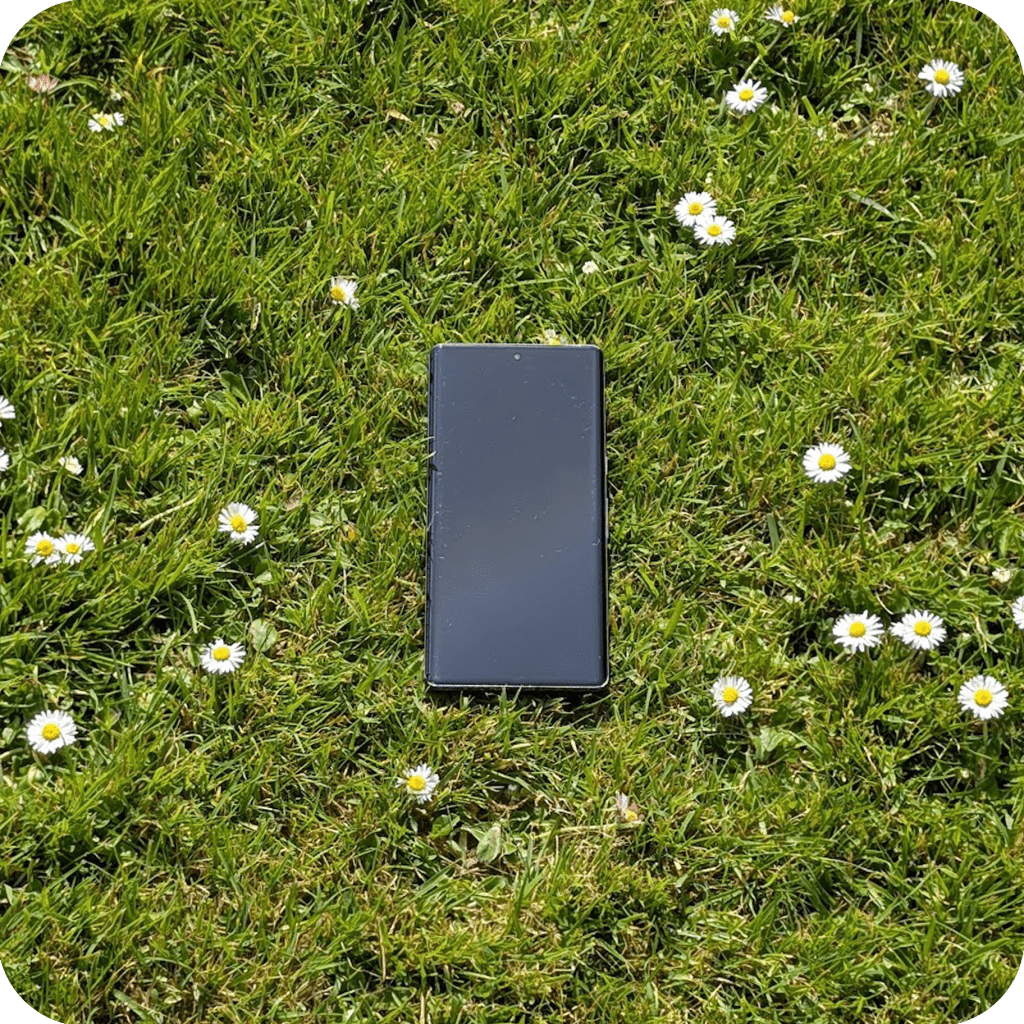
Nowadays, everyone has smart devices around them at all times – the main one being a phone. With social media and information being at our fingertips, we can find ourselves with our phones glued to our hands. This is one of the smallest changes I’ve found to make the biggest impact on my wellbeing. So today we’re going to go through how to tell if you’re addicted to your phone, reasons why being glued to our phones is bad and some simple things we can do to reduce screen time.
How to see the signs of being addicted to your phone?
The average screen time in the UK in 2024 was 5 hours and 6 minutes, according to Opal. This huge dedication of time can have a big impact on your well-being. So, how do you know if you’re stuck to your phone? Here are 4 questions to think about:
- Are you reaching for it first thing in the morning?
- Do you feel anxious when it’s not nearby?
- Do you find yourself doomscrolling with no memory of what you just saw?
- Are you using it to avoid boredom or silence?
If you answered yes to any of these questions, then you might want to look into how to reduce your screen time.
With modern smartphones, you can check your screen time in the phone’s settings. Click here to see how in an iPhone or Android.
Why is being on your phone a bad thing?
We’ve all normalised being on our phones, but being on your phone for this amount of time has several negative impacts. Constant phone use chips away at our attention span, making it harder to focus on anything for long. Notifications, pings, and infinite scrolls keep our minds in a state of low-level stress, always waiting for the next dopamine hit. Over time, this kind of stimulation can lead to mental fatigue, restlessness, and even anxiety.
But it’s not just about the mind – our phones can distance us from the people right in front of us! How many times have we zoned out of a conversation to check a message, or reached for our phone during a quiet moment that could’ve been used to just be?
It’s not about blaming ourselves — these devices were designed to hold our attention. But noticing the impact is the first step toward taking our presence back.
Things we can do to reduce screen time
There are some small things we can do to reduce our time on our phones. Even if you implement one of these, they can reduce your screentime and increase your presentness.
- Create phone-free zones or times: Whether it be not having phones at the table when eating, or just before bed. Setting up times without phones allows you to give something your full attention. You can set up bedtime mode on phones, which reduces notifications and can even reduce the blue light, which stops distractions.
- Replace scroll time with something intentional: Maybe try a new hobby and spend some intentional time instead of doomscrolling. If you want to read more about hobbies, click here.
- Leave your phone behind sometimes: When you go out for a quick walk or into another room while you’re relaxing, try leaving your phone behind. If you want to read more about walks and how they can also help increase your mood, click here
- Turn off the non-essential notifications: Having fewer notifications stops the distraction, and so it gives you less temptation to pick up your phone. Have a look at how many notifications you get from apps and try turning some of the less useful ones off.
- Try to not look at your phone as soon as you wake up: Looking at your phone first thing in the morning can disrupt your natural sleep-wake cycle, which sets your brain up for distraction. Try to let your brain wake up
- Use the “Do Not Disturb” or Focus Modes: Phones have a setting to stop notifications and to allow you to focus on other things, perfect for dinners or times you have your phone on you but want to focus on being present.
- Setting screen timers: If you struggle to put apps down, you can set app timers which stop letting you open apps after a certain amount of time each day. Personally, these have really helped me reduce my screen time, but they have also really helped my mental health.
The benefits of less phone time
As you begin to spend less time on your phone, you naturally start to spend more time in the present. You may find your conversations becoming more focused and meaningful because there are fewer distractions pulling your attention away.
You’ll likely start noticing the little things again. Like the colours changing with the season, or the different sounds nearby. These simple moments begin to feel fuller.
Mentally, you might feel a greater sense of clarity. With fewer digital interruptions, your mind has more space to focus, process, and rest. You may even find yourself sleeping more soundly and waking up feeling more refreshed.
No one is perfect
The main thing to remember is that no one is perfect. We are bound to use our phones to scroll social media, search things and communicate with people. But the main aim is to not let it control you.
Unplugging doesn’t mean giving everything up. It just means choosing to come back to the moment – the only place where real life actually happens.
If you’ve got any good tips for people looking to reduce the amount they spend on their phone, leave them down below.